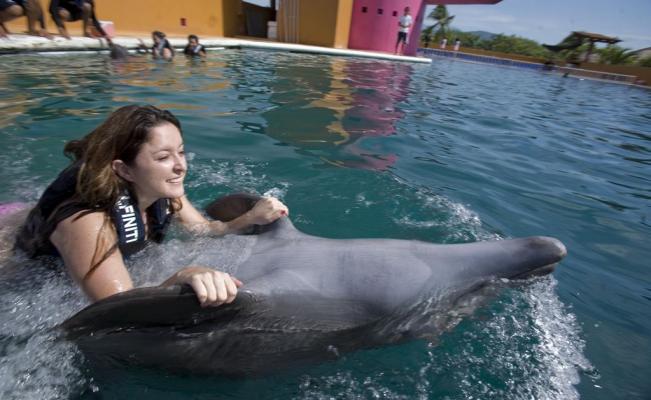Some countries around the world are trying to end the practice of marine mammals living in human care. The latest offensive is unfolding in Mexico where the legislature is considering prohibiting attractions that feature animals like dolphins, manatees, and sea lions at aquariums and other parks. The move would also ban allowing animals to engage in the natural behavior of breeding.
The proposal should be a cautionary tale for lawmakers in the U.S. And those south of the border should rethink their strategy.
Although the hearts of supporters may be in the right place, the plan is misguided. The approach will backfire on the conservation efforts responsible for preserving the very species these types of policies are intended to help. Radical animal liberation groups pushing to ban animals in human care clearly do not understand the broader movement aimed at preserving biodiversity and prioritizing the wellbeing of animals.
Modern zoos and aquariums help to facilitate and promote critical conservation efforts that governments and other private actors fail to accomplish on their own. These types of responsibly run institutions are vessels that safely house and help to sustain animals who face huge hurdles in the wild related to the sixth mass extinction.
The mass casualty event is sweeping across the planet — threatening species ranging from small insects to majestic creatures of the deep. Scientists estimate that species are now disappearing at a rate that is 1,000- to 10,000 times quicker than natural rates of extinction. It is going to take an all-hands-on-deck approach to prevent a disastrous outcome for the planet and the species that inhabit it.
CLICK HERE TO READ THE FULL ARTICLE BY Kashyap Choksi ON THE TIMES OF SAN DIEGO
TYT Newsroom


